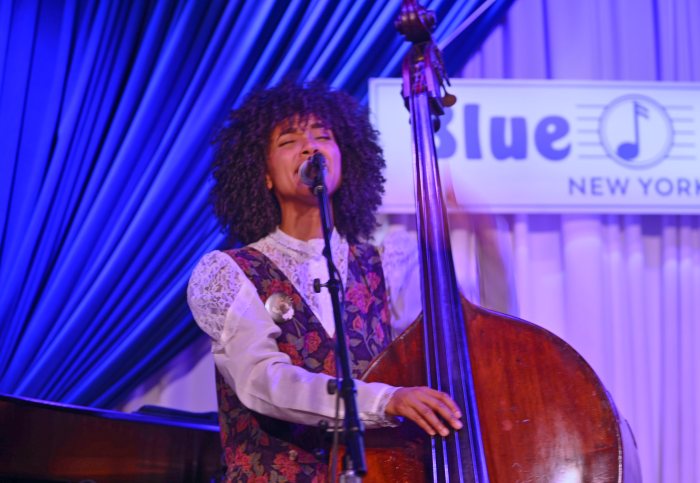At 21, Lucas Hedges is becoming one of the most interesting actors of his generation. Over the past two years, the Academy Award-nominated actor has shown a vast range of emotions when it comes to exhibiting a raw vulnerability on screen. Last year he appeared in "Lady Bird” as Christine’s (Saoirse Ronan) love interest, Danny, a terrified teen hiding a deep secret about his sexuality. In 2016’s “Manchester By The Sea” he played Patrick, a young high schooler dealing with grief after his father’s death; a role which earned him an Oscar nomination. Hedges has quickly established himself with work that calls for complexity and maturity well beyond his years.
In ”Boy Erased," based on Garrard Conley’s memoir of the same name, Hedges once again delivers as Jared Eamons, a gay man who undergoes conversion therapy at the request of his father, a Baptist pastor (Joel Edgerton) and other prominent members of the church community. The film delves into Jared’s shame in reaction to his oppressive home life and environment in Arkansas, and his journey through self-discovery and religion.
amNewYork spoke with Hedges to discuss the drama, in theaters Friday.
Your acting choices seem so instinctual. How do you pick material?
I think a lot of why I’ve had a lot of luck as an actor is because I’ve chosen really good projects. I think I have really good taste and I think a lot of what people [think of as] a “good actor” is choosing good material and becoming sensitive to it and letting it do the job for you.
You’ve represented the LGBTQ community beautifully in your work through different characters. What interested you about this particular story?
I felt like one of the driving forces of my middle school through high school life was shame. This is a story about shame. I really just related to Garrard’s voice, his writing. I felt it was brutally honest, relatable, and it felt like my own experience but in a really extreme environment. I thought if I played the role I could learn a lot from him.
What kind of advice did he give you?
I think it was overwhelming for Garrard to be put in a position in which I was asking him to mentor me into the experience. He lived it and it’s such a traumatizing experience that it wasn’t his job to do. I think I was so keen to impress and do right by him that I, at times, overwhelmed him by asking for advice. At the end of the day, I thought, “I just have to do this myself and trust that it’ll work out" and it did.
Did you get to speak with his parents? Did you reserve your own personal judgment?
Me, Joel, and Garrard went over to Arkansas and spent some time with his family. I would say, I experienced his parents through Garrard’s eyes. He has a really great relationship with his mom, so I felt that connection through him. [There were] ways in which I felt perhaps him and his father hadn’t reconciled parts of their relationship. I was very aware of the elephant in the room. It didn’t feel like we were getting together to judge each other. It felt like we were getting together to understand and to tell the story.
At the end of the day, could you let this character go?
Whenever I play a character I don’t think of it as a separate entity. It makes it less confusing and less daunting. It’s not really about letting go of the character. I don’t have to let go of that experience, because it’s an experience that informs me and that I can grow from. I haven’t had any identity crises since I did the film.
Although this deals with a very specific plight, did you look to other films about the LGBTQ experience while researching?
Yeah, I tried to read about queer history in America and watch documentaries. I read this book called “The Velvet Rage” [by Alan Downs]. It’s about this gay man writing specifically about his experience with shame of being gay and how he’s acted out of that shame and how that has affected his life. It was a really great in-depth look into the psychology of living with cultural oppression and of homophobia.
These attitudes around homophobia are alive and well. The livelihoods of LGBTQ people are still threatened. It’s such a heavily politicized issue — what do you make of the politics around it?
One of the things that’s easy to forget about having somebody like Donald Trump as president is that it’s inspiring a generation of people to exist in opposition to what’s being preached in the White House. The upside to tragedy is that beautiful things are made from fear and the desire to rise up and to triumph over darkness.
I couldn’t help but think about the awards race since you’re getting buzz for this film. You went through it with “Manchester By The Sea.” What was that experience like?
I really don’t know. When I think about it I spiral no matter what. When I was nominated it sent me on this weird — it was a really bizarre, flattering, but also a really confusing experience. There’s something that can be potentially isolating about it even if it does go your way. It’s my job right now to be like, “OK, what’s actually happening in my life? I’m here on an interview with you.” Because [the awards race] pulls me into a fantasy land of what’s going on and how people see me and I can’t really rely on that.
How do you temper your own expectations?
I have to tune it out completely. I’m not somebody who can do anything in moderation, you know? If it’s real, it’s real and until it’s real, it’s not happening as far as I’m concerned. [Laughs] I’m just thinking about doing cool movies.





































